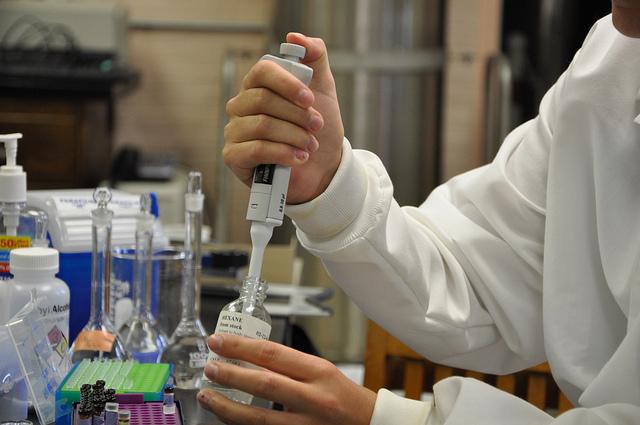A life-long learning advocate is supervising a new podcast series “Science Narratives,” which is meant to reach out to a variety of learners about University of Wisconsin research.
Lika Balenovich, UW’s division of continuing studies administration program specialist, oversees the new science podcast project. The podcast is part of Balenovich’s work toward a larger campus initiative to explore different models of learning to teach nontraditional learners.
As a part of the Educational Innovational Program Department, Balenovich said she focuses on nontraditional learners, professionals and students interested in advancing their lives through a master’s degree or certificate.
“We [work to] create opportunities to reach new audiences of learners and people who might not be connected to campus already, who might want to know what we do here and what we learn here,” Balenovich said. “That’s where ‘Science Narratives’ fits in as sort of a broad life-long learning opportunity for people on and off campus.”
Using a podcast and video audio, “Science Narratives” focuses on specific research studies being conducted at UW. The series is meant to keep people informed on the latest research that applies to daily life, both locally and nationally, she said.
Balenovich said the “Science Narratives” makes difficult, or sometimes more technical, scientific work more “approachable.” People who may not understand a specific area of research and have a limited amount of time to learn about it can now do so in a short and explanatory video, Balenovich said.
The podcast series kicked off Jan. 25 with two videos featuring research in UW’s computer science department, Balenovich said. The videos focus on researchers’ work on robotic technology, specifically on how robots can be designed to possess social qualities to interact with people.
The first season will continue through May and follow the robot technology, she said.
Balenovich said she is already looking forward to the next series and the research it will focus on.
“I think a lot of the research that happens here does have a sort of impact on the community and people on campus,” Balenovich said. “I don’t know if everyone is always aware of what that impact might be … [but the ‘Science Narratives’] puts the research here in a public, community space to see.”


